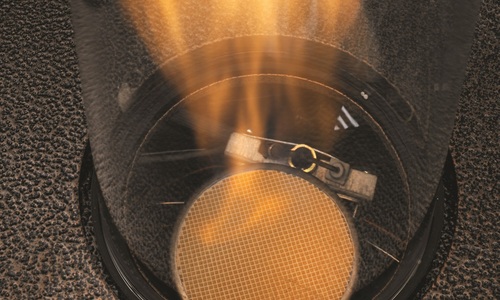Gas Heating and Safety
5 minute read |

When it comes to gas heating, there’s a lot of confusion. Many people are unsure about the safety, efficiency, and environmental impact of using gas for heating. Let’s break down some common myths and facts to help you make an informed decision.
Gas heaters are generally safe when used properly. Most gas tanks are designed to be puncture-resistant, which reduces the risk of leaks. If you install and connect the tank correctly, you can enjoy safe and reliable heating without worry.
Propane is one of the safest fuels available. It has a low flammability rating compared to other alternatives, and its distinct smell makes leaks easy to detect. This feature adds an extra layer of safety for users.
If you're using an oil-filled heater, you might notice some smoke or a slight odor when you first turn it on. However, this should go away after a few minutes. Always look for safety features like overheat protection and a tip-over switch to ensure your heater is as safe as possible.
Both gas and oil heaters emit small amounts of carbon monoxide, which is why proper ventilation is essential. For this reason, it's best to use these heaters outdoors or in well-ventilated areas to avoid any potential risks.
One common misconception is that gas heating is bad for the environment. In reality, propane is a cleaner-burning fuel. It doesn’t contain lead or sulfur and produces fewer greenhouse gases than other fuels. When burned, it only releases water vapor and carbon dioxide, making it a more eco-friendly option.
Oil-filled heaters are also considered environmentally friendly. They don't release harmful chemicals and are non-toxic. Plus, they’re biodegradable, so they have a smaller environmental footprint when disposed of properly.
While gas heating systems may cost more upfront, they tend to be more cost-effective in the long run. Maintenance costs are usually low, and propane prices often remain stable compared to other fuels. Over time, this can result in significant savings.
Propane is a byproduct of natural gas processing and petroleum refining. It's also known as LP gas, and it contains small amounts of propylene and butylene. To make leaks easier to spot, an odorant called ethanethiol is added to propane.
A gallon of propane provides about 91,500 BTUs, making it an efficient heating source. Compared to other fuels, it burns cleaner and leaves a smaller carbon footprint. This makes it a great choice for those looking for both performance and sustainability.
Propane heaters come in various types, including patio heaters, tabletop models, and portable space heaters. These units are versatile and ideal for both indoor and outdoor use. They’re easy to set up, require no installation, and provide quick, effective warmth.
Tabletop Patio Heaters: Perfect for small spaces, these compact units fit nicely on your patio table. They heat a 20-foot radius and blend well with your outdoor decor.
Portable Gas-Fired Space Heaters: These units can warm large areas, up to 2,500 square feet, depending on their size and BTU output. They're ideal for heating garages, patios, or open spaces.
Tank Top Propane and Infrared Heaters: These heaters are great for large areas and offer instant warmth. Some models include infrared technology, which heats objects directly rather than just the air, providing more efficient and immediate comfort.
Whether you're looking for a safe, efficient, and eco-friendly heating solution, gas heating offers a range of benefits. With the right precautions and maintenance, it can be a smart and sustainable choice for your home or business.
Want more information? Have a question? Contact us today, and we will be happy to help!
, 50E fuel dispenser, low profile fuel pump, compact fuel dispenser
Henan Wenjia Energy Technology Co., Ltd , https://www.hnwjny.com